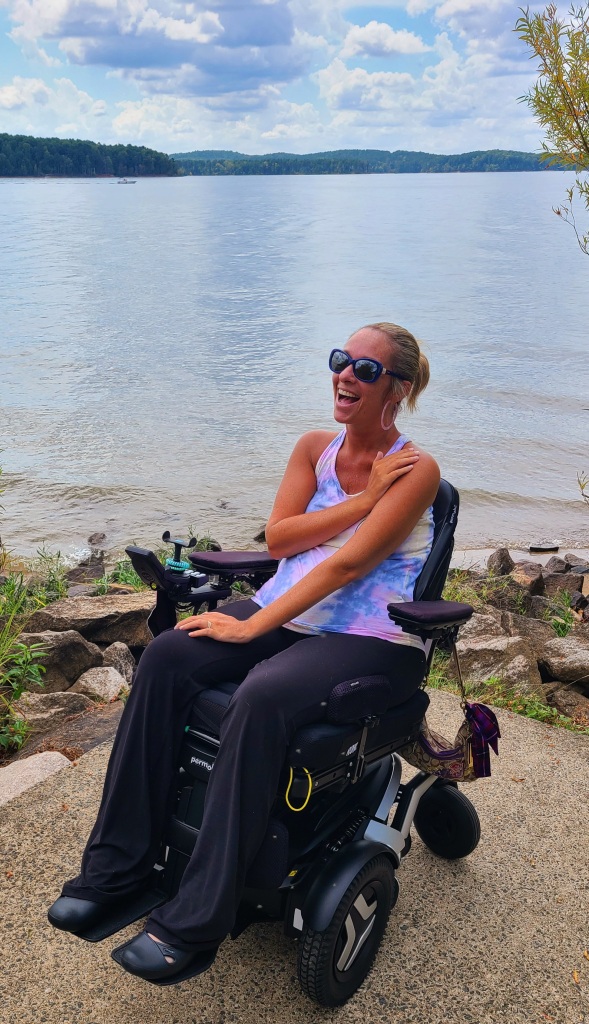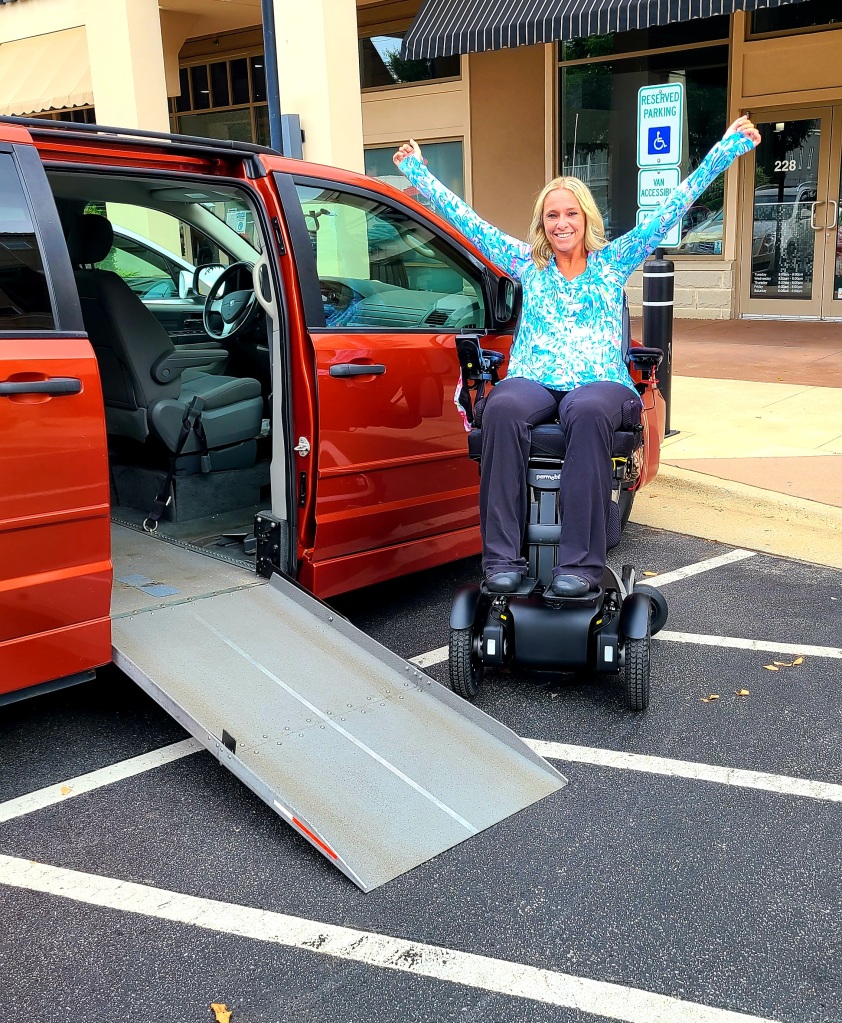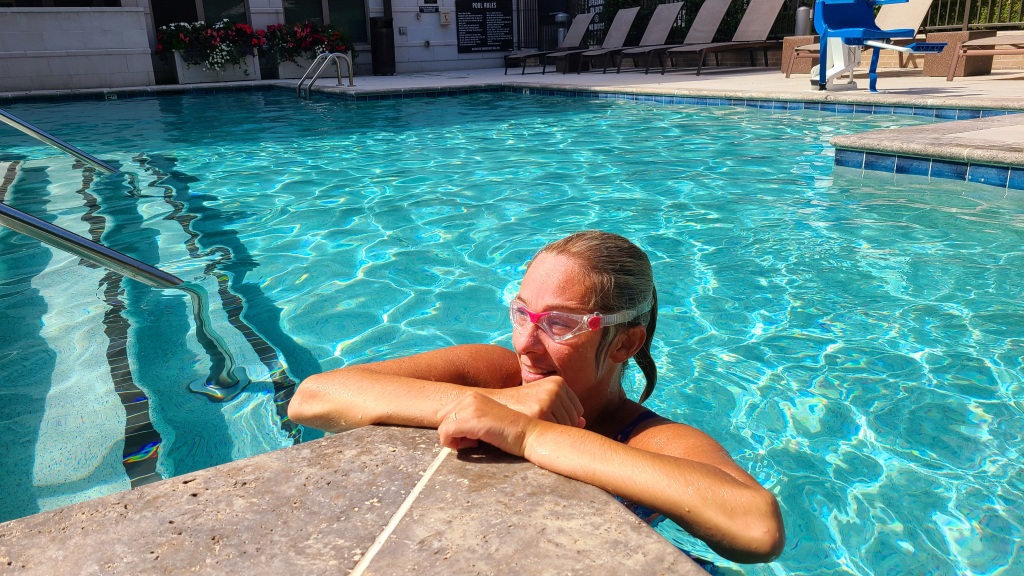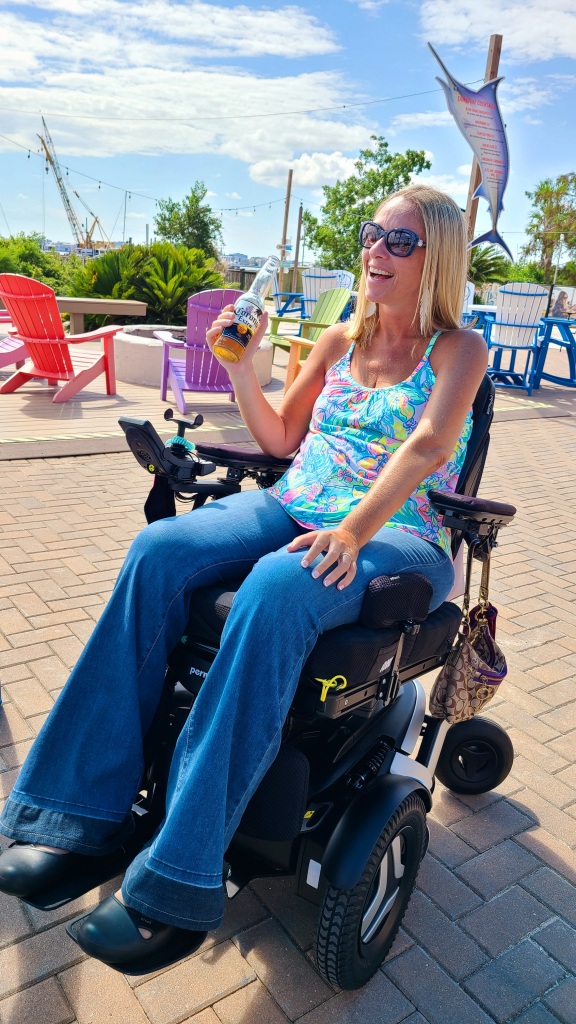
The absurdity of spinal cord injury with respect to the fact that being paralyzed is oftentimes the least of your challenges as compared to the endless secondary medical complications, caregiving challenges, financial burdens, to name a few, can turn a perfectly sane individual into one who is tinkering on the edge of insanity. The question remains is how do so many of us with these life altering changes cope with, what can only be described at times, as a revolving circus carnival of animals?
We each develop and build upon our own coping mechanisms as the year’s progress and as we become a little bit older and wiser in spinal cord injury years. For me, dark humor is, bar none, my number one savior to get me through most days.
When I am trying to budget every penny or train a new caregiver or figure out to make my professional schedule work with a broken body, but an ambitious mind – I sometimes have to stop my mind from meandering down a dark and twisty road. Often times I do feel dark and twisty, but I turn that twisty into humor for my mental survival.
If I lived my life believing life was fair I certainly would not have come as far as I have today. Bad things happen to good people and while many of us intuitively know this, when something bad happens to you personally, you question yourself, the universe, your higher power, etc. You try to find meaning behind every bad scenario and when you are simply unable to muster up the strength, the darkness can come circling in quite quickly like a dark stormy day with a tropical storm torrential downpour out of nowhere.
People often comment on my patience, positive attitude, and inspirational outlook on life, and while I take great comfort in many of these complements – what gets me through my day thinking about some of the utterly hilarious and disastrous moments I have survived over the last 11 years is Dark Humor. When disaster strikes in my life, and it has more times than I care to recall, I quite literally stop and laugh at how I survived many of these moments. What I’m about to share with you is probably too much information, but I personally find great comfort in hearing about other people’s coping mechanisms because sometimes I adopt some of these strategies into my own life.

We all learn from one another and I believe being completely transparent about how we deal with so many tragedies lurking around every corner makes us kinder human beings, and definitely more sympathetic if not more empathetic.
So, with that I will share with you several aspects of my life, which are probably incomprehensible to the average able-bodied individual, but to those with significant physical mobility impairments – it is part of our daily realities! Most importantly, I hope they will make you giggle because I’m pretty sure most of you do not deal with this on a daily basis. Keep dark humor in mind 😉
- The Nudist
When you are a child you run around naked all of the time. It’s natural and accepted in society I would say. As you age into adolescence and adulthood you start wearing more clothes and it’s considered “indecent exposure” if you choose not to abide by the laws of wearing clothes in a civil society.
I, on the other hand, after sustaining my spinal cord injury have found that as the years have progressed I keep wearing less and less clothes. I would say I am naked 50% of my day. I have quite literally lost count of how many doctors, nurses, medical professionals, and caregivers have seen me naked.
I am pretty much a nudist. Wearing too many clothes is actually quite dangerous for me. If I don’t get a wrinkle out of my pants I may end up with a pressure sore. Therefore, unless I have to go somewhere professional I spend half my day half naked around the house. When I am performing many of my caregiving duties in my bed I am stark naked like a baby. I quite like it actually, however, whenever I bring in new caregivers into my home they always ask me if I am uncomfortable. I just tell them to take it all off. The less the better in my opinion.
Whenever I go in for surgery the doctor sometimes asks me if I am decent with respect to my clothing, to which I reply “I’m going to be naked on your table in about two hours, might as well get used to seeing me this way!”
Embrace the nakedness. We were born naked. Let’s all be more naked! Here’s to a life of less clothing 🙂

2. “Got to go, got to go, got to go right now …”
It’s no secret that when you sustain a spinal cord injury your bowel and bladder are not always entirely in your control. I underwent a small surgery to have a little stoma (hole) placed in my bladder where a catheter is inserted and connected to a leg bag. When I have to pee I get these little goosebumps on my arm (it’s my body’s way of telling me my bladder is full) and I flip a little clip to empty my urine out of my bladder into my bag.
It’s a pretty nifty little set up as I can pretty much pee on the side of a tree or in a cup on a sidewalk – you name it. I think it’s fabulous, but the medical supplies I need to make all of this happen are not always made to the highest of quality. Therefore, sometimes I find myself peeing all over myself in the middle of a bar or at dinner or hanging out with my friends. Sure, I can get embarrassed, but we all do it. While it can definitely be embarrassing, it’s all about your attitude. I tell people who I am with about this set up as I watch them staring at my leg with curiosity as to why there is a tube under my pants.
I’m extremely open about much of my medical care, what I go through, and if they see a big puddle on the floor to not be alarmed because it’s likely me with respect to the fact that I’ve peed all over the floor – much like a dog. No, I’m not kidding. It’s happened before, it will happen again, and it’s all in how you approach your attitude towards these situations. I can’t help that my bladder has a mind of its own or when I have equipment malfunctions. It’s just part of this life I live.
3. I Just Can’t Hide It
Oh the bowels! This is definitely the least comical part of living a life with paralysis, but just as with the bladder, the bowels are also impacted after spinal cord injury. When you are first injured you are taught a bowel program because sometimes, especially as a quadriplegic, you don’t have sensation when you have to go to the bathroom. In the early years of my spinal cord injury I tried my best to create a regular bowel program with suppositories, but my body did not always listen. They were months I was actually trapped in the home because I just couldn’t figure out the right diet, medication regiment, or life routine to gauge how to regulate when my body wanted to poop.
Again, we all do it, none of us talk about it, and we certainly do not discuss our bodily routines with most people. However, if you live with paralysis bodily functions encompass a great deal of thought each day.
Listen, you’re going to have accidents no matter how perfect a life program you have, but when they do happen, it’s not uncommon to feel embarrassed. I mean who wants to poop on themselves? Certainly not me! It does happen though, not as often as you would think as the years roll by and you get a handle on how to deal with your body, but if you are a newbie to this spinal cord life don’t despair! I promise you will get a handle on it, but you are likely going to poop on many people over the course of your spinal cord injury career. I have lost count of the number times I have had accidents in my chair, in bed, and on people. Yes, you read that correctly, but if you have the right team around you can find a way to laugh about it.
I used to live in a complete anxiety because of my bowels for many years, but as the years progressed, I actively chose to let much of this anxiety go, which ironically, made my body relax resulting in less accidents. It’s incredible how stress can just completely derail your body physically and mentally.

4. The Spastic Quad
Involuntary muscle spasms are quite a serious side effect and secondary challenge to be dealt with after spinal cord injury. I will not get into the scientific mechanisms of why muscle spasms occur, you have Google right in front of you so I’m confident you can look it up :-), but needless-to-say they are a real pain in the butt! They’re not necessarily dangerous because they can promote blood circulation by flexing all your muscles at the same time, but they are certainly inconvenient as it relates to sliding out of your chair or having your paralyzed hands start repetitively, and consistently shaking with no “off switch.”
I’ll be at a business meeting or hanging out with friends and all of a sudden my foot starts repetitively tapping my foot plates like thumper the rabbit or my fingers will start dancing on their own like a carefully crafted dance of the sugarplum fairies – all while people are uncomfortably looking at me not knowing quite what to do or say.
In the early days of my injury I would have people tell me that my motor function was returning and you should have seen the excitement on their face. It was almost heartbreaking to alert them to the fact that is just a reflex response of my body and I had to regretfully inform them this was not some miraculous recovery I was undergoing.
In Summation …
I find people are generally uncomfortable with what they don’t understand. I fully believe in education and awareness, so I stop what I’m doing and I explain what’s going on with my body, whatever that may be at that moment, and suddenly you can see this relaxation on their faces when they better understand when I explain what is happening.
I do have folks I know in the disability community that are extremely private and either feel embarrassed or don’t feel the need to explain their disability to an able-bodied person, but I, on the other hand, feel strongly about helping people understand what I deal with on a daily basis. While it can be time-consuming and repetitive when I have to say the same thing over and over again to numerous people on the same topic, it’s important, in my opinion, to shed light on the unknown – on whatever topic that may be.
When in doubt, ask. Please ask respectfully, but how else are you going to learn? I am the woman with 50 questions at all hours of the day, so when I don’t know something I know I certainly ask a question. This is not to say you will not encounter individuals who do not want to talk about their disability, which is their right, but more often times than not you will find individuals with disabilities are very willing to chat about their differences if asked a question.
So, with that, go forth and ask a question if you are unfamiliar someone’s situation if appropriate. What’s the worst they can do? Not share with you their disability? No problem, go ask the next person, and then just keep learning.
Today I shared with you some of the physical challenges I deal with, that many of us with spinal cord injury deal with, through the lens of dark humor as a coping mechanism, because I wanted a little bit of humor in today’s writing. None of these physical challenges stop me from accomplishing my goals; they may slow me down at times a bit, but I find a way to get what I need done in a day by adapting my life accordingly.

However, on a serious note —
It is only through education, awareness, and asking questions that we are going to be able to change the stigma surrounding people with disabilities in our society. Many of us are rock stars, but not given the chance to prove it because too many people in the able-bodied population feel sorry for us. Don’t feel sorry for us! Ask us questions, give us a chance, and let us prove to you that we are quite resilient individuals that have overcome more than our fair share of adversity in life!
Let’s change the Narrative!


